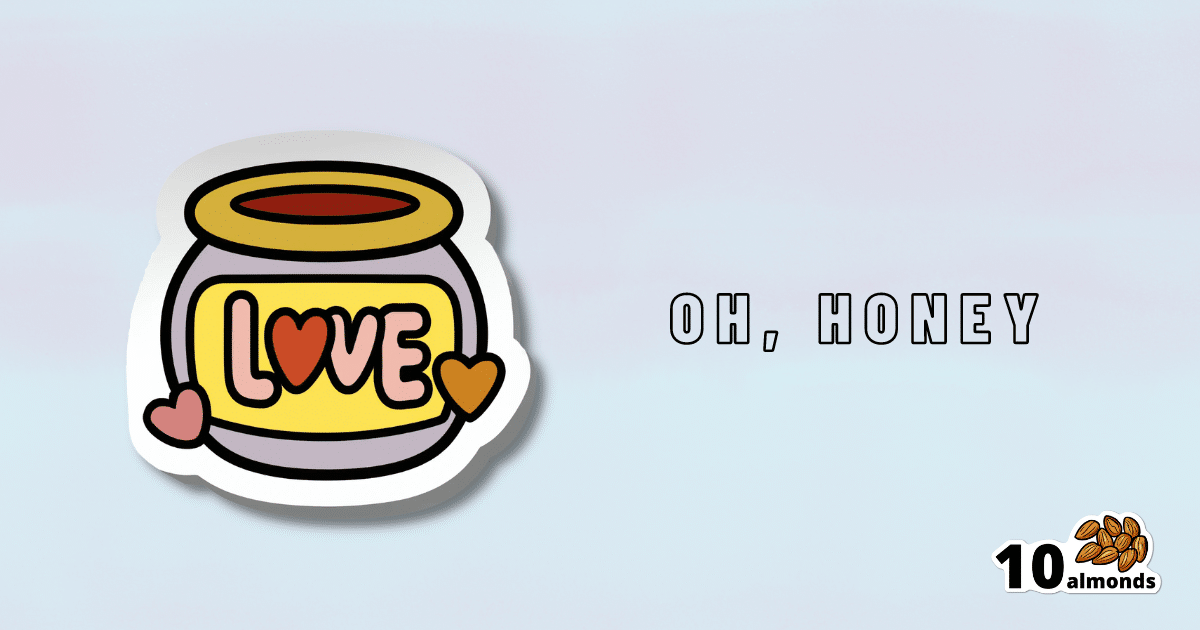Oh, Honey
Can Honey Relieve Allergies? Local honey is believed to introduce allergens in a non-allergy inducing way, providing relief from allergic rhinitis. While more research is needed, manuka honey shows promise as an effective remedy.

🍯 The Bee’s Knees?
If you’d like to pre-empt that runny nose, some say that local honey is the answer. The rationale is that bees visiting the local sources of pollen and making honey will introduce the same allergens to you in a non allergy-inducing fashion (the honey). The result? Inoculation against the allergens in question.
But does it work?
Researching this, we found a lot of articles saying there was no science to back it up.
And then! We found one solitary study from 2013, and the title was promising:
But we don’t stop at titles; that’s not the kind of newsletter we are. We pride ourselves on giving good information!
And it turned out, upon reading the method and the results, that:
- Both the control and test groups also took loratadine for the first 4 weeks of the study
- The test group additionally took 1g/kg bodyweight of honey, daily—so for example if you’re 165lb (75kg), that’s about 4 tablespoons per day
- The control group took the equivalent amount of honey-flavored syrup
- Both groups showed equal improvements by week 4
- The test group only showed continued improvements (over the control group) by week 8
The researchers concluded from this:
❝Honey ingestion at a high dose improves the overall and individual symptoms of AR, and it could serve as a complementary therapy for AR.❞
We at 10almonds concluded from this:
❝That’s a lot of honey to eat every day for months!❞
We couldn’t base an article on one study from a decade ago, though! Fortunately, we found a veritable honeypot of more recent research, in the form of this systematic review:
Read: The Potential Use Of Honey As A Remedy For Allergic Diseases
…which examines 13 key studies and 43 scientific papers over the course of 21 years. That’s more like it! This was the jumping-off point we needed into more useful knowledge.
We’re not going to cite all those here—we’re a health and productivity newsletter, not an academic journal of pharmacology, but we did sift through them so that you don’t have to, and:
The researchers (of that review) concluded:
❝Although there is limited evidence, some studies showed remarkable improvements against certain types of allergic illnesses and support that honey is an effective anti-allergic agent.❞
Our (10almonds team) further observations included:
- The research review notes that a lot of studies did not confirm which phytochemical compounds specifically are responsible for causing allergic reactions and/or alleviating such (so: didn’t always control for what we’d like to know, i.e. the mechanism of action)
- Some studies showed results radically different from the rest. The reviewers put this down to differences that were not controlled-for between studies, for example:
- Some studies used very different methods to others. There may be an important difference between a human eating a tablespoon of honey, and a rat having aerosolized honey shot up its nose, for instance. We put more weight to human studies than rat studies!
- Some kinds of honey (such as manuka) contain higher quantities of gallic acid which itself can relieve allergies by chemically inhibiting the release of histamine. In other words, never mind pollen-based inoculations… it’s literally an antihistamine.
- Certain honeys (such as tualang, manuka and gelam) contain higher quantities of quercetin. What’s quercetin? It’s a plant flavonoid that a recent study has shown significantly relieves symptoms of seasonal allergies. So again, it works, just not for the reason people say!
In summary:
The “inoculation by local honey” thing specifically may indeed remain “based on traditional use only” for now.
But! Honey as a remedy for allergies, especially manuka honey, has a growing body of scientific evidence behind it.
Bottom line:
If you like honey, go for it (manuka seems best)! It may well relieve your symptoms.
If you don’t, off-the-shelf antihistamines remain a perfectly respectable option.
Share This Post
Learn To Grow
Sign up for weekly gardening tips, product reviews and discounts.




